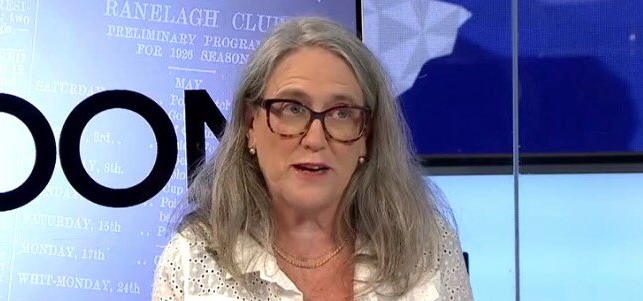 Screenshot from Twitter.
Screenshot from Twitter. Dr. Emily Landau, a senior research fellow and head of the Arms Control and Regional Security Program at the Institute for National Security Studies (INSS) told reporters in an April 30 conference call that Israeli Prime Minister Benjamin Netanyahu’s speech was “extremely important.”
Landau stated that while Netanyahu didn’t necessarily provide anything new, it provided “a lot of information and a lot of flesh in regards to Iran’s work in the past on nuclear weapons programs.” For instance, Netanyahu’s speech accentuated the International Atomic Energy Agency (IAEA)’s “damning” 2015 report about Iran’s ambitions to develop nuclear weapons that the P5+1 nations swept under the rug.
Consequently, the fact that Iran has never had to answer for their nuclear weapons program means that pertinent information on the latest developments of their weapons program is not available. But what Netanyahu revealed on April 30 provides concrete proof that Iran was lying in their repeated denials of developing nuclear weapons.
“People should be standing up and saying no that’s a lie,” Landau said, adding that “breaking that false narrative of nuclear innocence is important.”
Landau then pointed out that the IAEA was never allowed to interview Dr. Mohsen Farkhrizadeh, the scientist who lead Iran’s Project Amad program to develop nuclear scientists continued to lead the regime’s efforts at nuclear development under the guise of “scientific knowhow.” She argued that the fact that Iran kept information on their nuclear weapons “in an orderly program” shows that they were never serious about nixing their program.
Therefore, the goal of Netanyahu’s speech was to show “the extent to which Iran has lied and cheated and deceived the international community in the nuclear realm for decades.”
“To think this deal will cause Iran to back away… like it’s on very, very shaky ground,” Landau said.
Landau also pointed out the speech was an “implicit message that Israel has access to inner workings inside Iran.”
Landau highlighted some of the flaws in the deal, including the “convoluted” provisions of the deal regarding IAEA since they can only go to “declared nuclear facilities.” The deal also didn’t cover Iran’s ballistic missiles program.
Despite the deal’s flaws, Laundau thought that the ideal course of action going forward is to “strengthen” the Iran deal since it would be difficult to negotiate a new deal altogether.
“Iran needs to get the message that American and Europe are not happy with a lot of Iran’s activities,” Landau said.





















 More news and opinions than at a Shabbat dinner, right in your inbox.
More news and opinions than at a Shabbat dinner, right in your inbox.